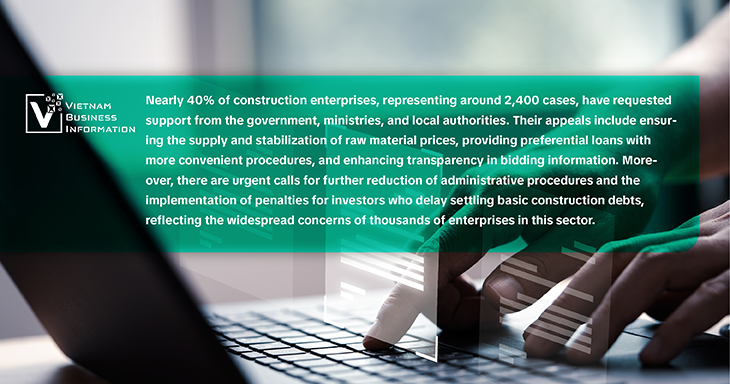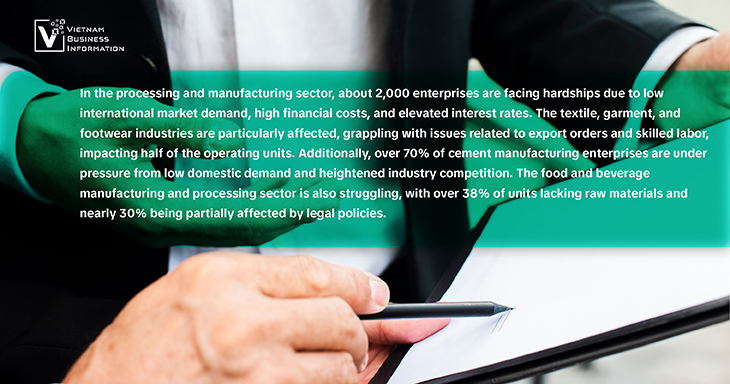Published Jul 2024
Tens of thousands of enterprises grapple with job and capital shortages
A comprehensive review by the Ministry of Planning and Investment, encompassing 29,300 enterprises across critical economic sectors, has unveiled the profound and far-reaching impacts of the ongoing economic crisis.

Severe impact of economic crisis on key sectors
In the construction sector, approximately 3,000 enterprises are experiencing significant challenges due to a pronounced "lack of new construction contracts." This shortage of new contracts, coupled with escalating material costs, is the primary factor hindering the production and business activities of these enterprises. Additionally, construction firms are contending with unresolved issues such as delays in basic construction debt settlements, capital shortages, limited capacity, and cumbersome administrative procedures. The sector has become a focal point for business petitions amid these evident difficulties.
Nearly 40% of construction enterprises, representing around 2,400 cases, have requested support from the government, ministries, and local authorities. Their appeals include ensuring the supply and stabilization of raw material prices, providing preferential loans with more convenient procedures, and enhancing transparency in bidding information. Moreover, there are urgent calls for further reduction of administrative procedures and the implementation of penalties for investors who delay settling basic construction debts, reflecting the widespread concerns of thousands of enterprises in this sector.

Major factors affecting business operations
According to the Ministry of Planning and Investment's review, the two most significant factors currently affecting business operations are low domestic market demand and intense competition among domestic goods. These challenges are pervasive across key economic sectors, including:
- Manufacturing: Over 6,100 enterprises
- Construction: Approximately 6,000 enterprises
- Trade and Services: More than 17,100 enterprises
In the processing and manufacturing sector, about 2,000 enterprises are facing hardships due to low international market demand, high financial costs, and elevated interest rates. The textile, garment, and footwear industries are particularly affected, grappling with issues related to export orders and skilled labor, impacting half of the operating units. Additionally, over 70% of cement manufacturing enterprises are under pressure from low domestic demand and heightened industry competition. The food and beverage manufacturing and processing sector is also struggling, with over 38% of units lacking raw materials and nearly 30% being partially affected by legal policies.

Despite positive recovery signals in the second quarter, the electricity and electronics sector is not immune to challenges. Low international market demand and a shortage of skilled labor are affecting about half of the enterprises in this sector.
Prominent recommendations for the processing and manufacturing sector include reducing loan interest rates, stabilizing raw material prices, shortening administrative procedures, and ensuring a stable power supply for business operations. Additionally, enterprises are urging the government, the Prime Minister, and local authorities to implement policies supporting businesses with the global minimum tax rate of 15%, enhance market control, and stabilize the quality of raw material supplies, particularly for processing enterprises that utilize agricultural products.
The comprehensive review highlights the acute struggles of enterprises across various sectors amid the economic crisis. Addressing these challenges requires concerted efforts from the government and relevant authorities to provide the necessary support and create an enabling environment for businesses to thrive.
Source: theleader
Compiled by Vietnam Business Information















